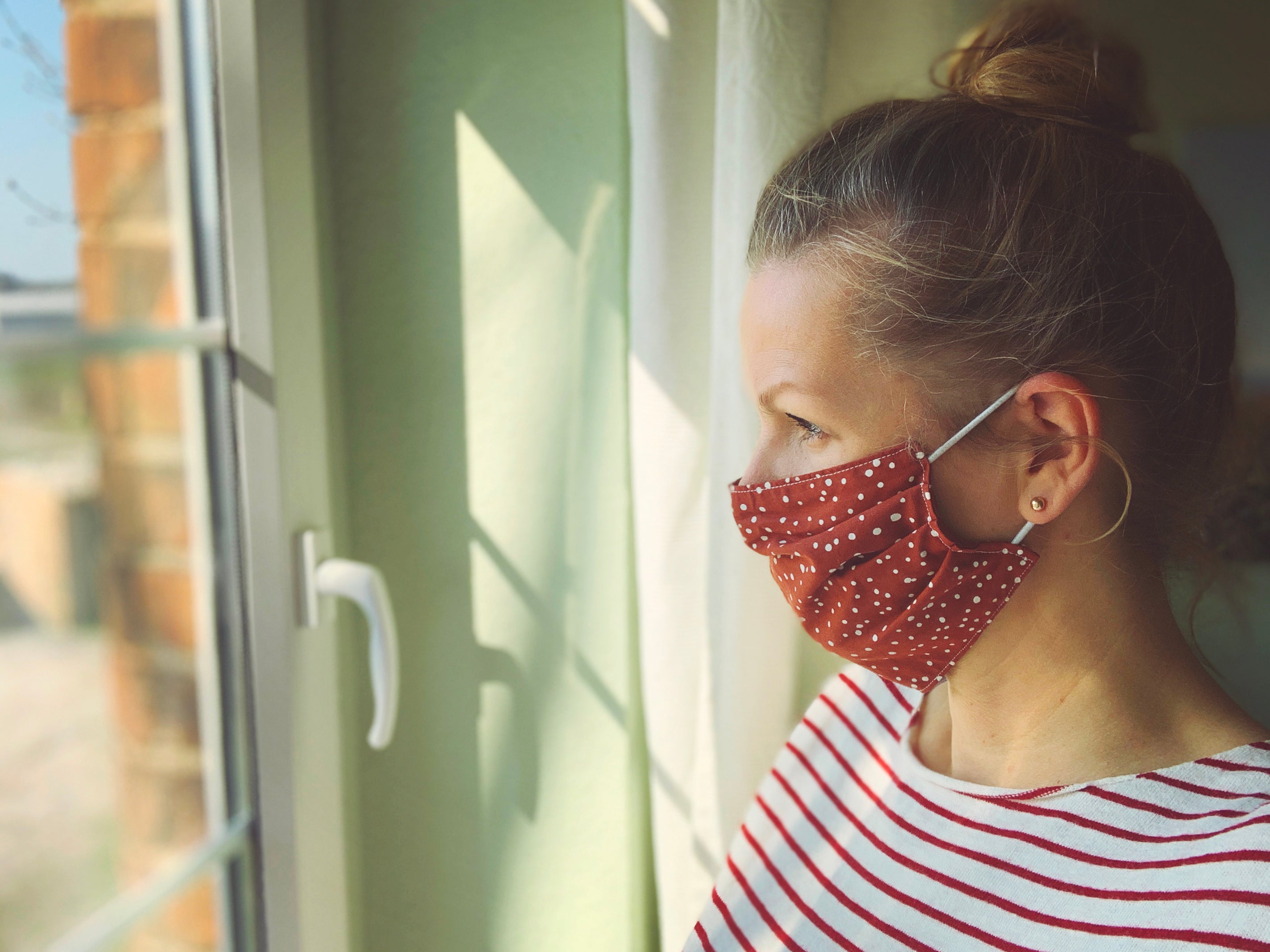The Independent's journalism is supported by our readers. When you purchase through links on our site, we may earn commission.
Shop-bought face masks can allow 93% of virus particles through, study finds
Masks made from just one layer found to be most ineffective

Your support helps us to tell the story
From reproductive rights to climate change to Big Tech, The Independent is on the ground when the story is developing. Whether it's investigating the financials of Elon Musk's pro-Trump PAC or producing our latest documentary, 'The A Word', which shines a light on the American women fighting for reproductive rights, we know how important it is to parse out the facts from the messaging.
At such a critical moment in US history, we need reporters on the ground. Your donation allows us to keep sending journalists to speak to both sides of the story.
The Independent is trusted by Americans across the entire political spectrum. And unlike many other quality news outlets, we choose not to lock Americans out of our reporting and analysis with paywalls. We believe quality journalism should be available to everyone, paid for by those who can afford it.
Your support makes all the difference.New research has identified a major difference in the effectiveness of different types of face coverings, with some allowing 93 per cent of harmful virus particles to escape.
Consumer watchdog Which? carried out studies on 15 masks that can be purchased online and on the high street and tested them on filtration efficiency, breathability, ease of use, and instructions.
Face coverings made from just one layer were found to be the least effective, with the lowest-ranking ones identified as a Termini8 face covering sold by Lloyds Pharmacy at £2, one from Asda priced at £3, and an Etiquette-branded mask available at Superdrug for £3.
While all of these face coverings were lightweight and easy to breathe through, Which? reported that they were not effective at filtering harmful particles.
In light of their findings, Which? has advised consumers not to buy any of these masks, claiming that the Etiquette mask filters just seven per cent of harmful particles.
Meanwhile, several masks were highly rated by the consumer watchdogs.
In first place was the NEQI resuable face mask sold at Boots and Ocado in packs of three for £15. It was found to filter 80 per cent of particles but was also very easy to breathe through.
In second place were the face coverings made by Bags of Ethics Great British Designer, available at ASOS and John Lewis for £15 in packs of three. It was rated as the most breathable mask but also rated highly in terms of filtration.
The study also looked at how effective masks were at preventing glasses from steaming up, something that is common for those wearing face coverings that aren’t completely breathable.
Which? found that just two masks were suitable for those wearing glasses: a £12 mask from ASOS and the £10 AB Mask.
Natalie Hitchins, Which? head of home products and services, said there is a "huge difference" in quality between reusable masks sold in stores around the country and online.
"We would urge manufacturers to use our findings to up their game and improve their products - until then it is worth taking time to research the best option for yourself and your loved ones," she said.
Asda commented that its face coverings "comply with British Retail Consortium guidance and the Office for Product Safety and Standards".
The company added: "The covering that featured in this review was produced before the CWA17533 guidelines were published and is no longer on sale."
Superdrug said its Etiquette mask had been tested against official guidelines, adding: "This product was clearly retailed as a fabric face covering and not a surgical mask - designed to help the wearer reduce the spread of a cold or virus, as per government guidelines."
Additionally, Lloyds Pharmacy said its Termin8 mask is "compliant with all necessary requirements as set out by the Department for Health & Social Care and the British Retail Consortium, for use as a face covering in numerous public settings as required by UK law".
The research comes after a study conducted by researchers at the University of Cambridge and Northwestern University, found most of the fabrics commonly used for non-clinical face masks are effective at filtering ultrafine particles that may contain viruses such as SARS-CoV-2, the virus which causes Covid-19.
For the study, researchers tested everything from t-shirts and socks to jeans and vacuum bags to uncover which type of mask material was most effective at filtering the particles at high speeds, which reflected how they’d work if someone coughed or breathed heavily into the mask.
They also examined the effectiveness of N95 and surgical masks, which are more commonly worn by healthcare professionals.
You can see the full results of Which?'s research here.
The Independent has contacted Asda, Superdrug and Lloyds Pharmacy for further comment.



Join our commenting forum
Join thought-provoking conversations, follow other Independent readers and see their replies
Comments